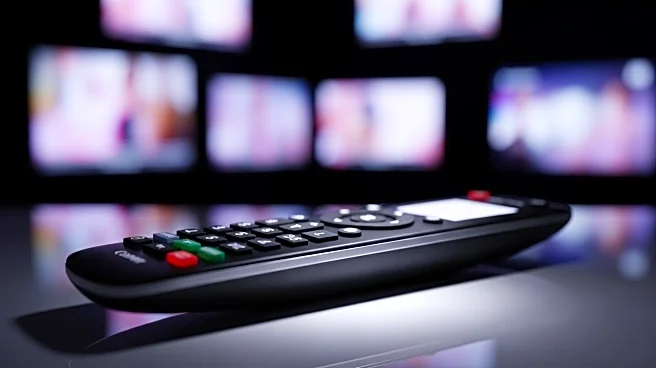What's Happening?
In 2025, several high-profile reality TV scandals have emerged, prompting networks to reconsider their programming strategies. Bravo delayed the premiere of 'Wife Swap: The Real Housewives Edition' due to Wendy Osefo's arrest on fraud-related charges, highlighting the legal risks associated with airing controversial content. Hulu capitalized on the 'soft swinging' revelations from the Mormon MomTok community, turning it into a series that has captured public interest. The affair between Tom Sandoval and Raquel Leviss continues to impact celebrity culture, affecting the reputation of associated businesses. Chip and Joanna Gaines faced backlash for featuring a same-sex family in their show, sparking cultural debates. Additionally, Bella Thorne's allegations against Mickey Rourke have reignited discussions on on-set safety and producer accountability.
Why It's Important?
These scandals underscore the evolving landscape of reality TV, where legal, cultural, and ethical considerations are increasingly influencing programming decisions. Networks are now more cautious, implementing tighter legal reviews and adjusting promotional strategies to mitigate risks. The public's response to these scandals reflects broader societal debates on representation, accountability, and the impact of celebrity culture. As networks navigate these challenges, they must balance viewer interest with responsible content creation, potentially reshaping the future of reality TV.
What's Next?
Networks are expected to adopt more stringent legal and ethical guidelines, potentially leading to fewer surprise premieres and more context-driven content. The ongoing public discourse may influence how shows are edited and promoted, with a focus on transparency and accountability. As these scandals continue to unfold, viewers may see changes in how reality TV addresses controversial topics, with networks aiming to maintain audience engagement while avoiding legal pitfalls.
Beyond the Headlines
The implications of these scandals extend beyond immediate programming changes, potentially affecting long-term industry standards. The debates around representation and accountability may lead to shifts in how reality TV portrays diverse communities and handles allegations of misconduct. This could result in a more inclusive and responsible approach to content creation, influencing the cultural impact of reality TV on society.









